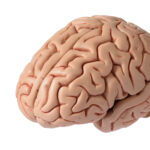### The Impact of Vitamin D on Cognitive Function in Seniors
As we age, our brains undergo natural changes that can affect our cognitive abilities. One of the key factors that can influence these changes is vitamin D. This essential nutrient plays a crucial role in maintaining brain health and has been linked to reduced cognitive decline in seniors.
### What is Vitamin D?
Vitamin D is a fat-soluble vitamin that our bodies produce when we are exposed to sunlight. It is also found in certain foods like fatty fish, egg yolks, and fortified dairy products. Vitamin D is important for bone health, but it also has significant effects on brain function.
### How Does Vitamin D Affect Cognitive Function?
Research has shown that vitamin D deficiency is associated with an increased risk of cognitive impairment and dementia. Here are some key findings:
– **Reduced Risk of Dementia**: Studies have found that people who take vitamin D supplements have a 40% lower risk of developing dementia compared to those who do not take supplements[2].
– **Improved Cognitive Scores**: Vitamin D has been linked to better cognitive performance. In one study, participants with higher levels of vitamin D had significantly lower scores on cognitive tests like the Digit Symbol Substitution Test (DSST)[1].
– **Synergistic Effect with Other Factors**: Vitamin D can have a synergistic effect when combined with other factors. For example, exposure to secondhand smoke (SHS) can exacerbate the negative effects of vitamin D deficiency on cognitive function, especially in overweight and obese individuals[1].
### Why is Vitamin D Important for Brain Health?
Vitamin D influences various cellular functions in the body, which may help prevent age-related brain changes. Here are some theories:
– **Clearing Beta-Amyloid**: Vitamin D helps clear beta-amyloid, a protein that plays a role in Alzheimer’s disease. This process is similar to the mechanism targeted by new prescription drugs for Alzheimer’s[2].
– **Slowing Tau Tangles**: Vitamin D might also slow the buildup of tau tangles, which are another hallmark of Alzheimer’s disease. These tangles can slow down a person’s ability to think and remember[2].
### How Can Seniors Get Enough Vitamin D?
While sunlight is a natural source of vitamin D, it may not be enough for everyone, especially during winter months or for those who spend most of their time indoors. Here are some ways seniors can get enough vitamin D:
– **Sunlight Exposure**: Spending time outdoors, especially during peak sun hours, can help the body produce vitamin D.
– **Dietary Sources**: Eating foods rich in vitamin D, such as fatty fish, egg yolks, and fortified dairy products, can provide essential amounts.
– **Supplements**: Taking vitamin D supplements under the guidance of a healthcare provider is another option. The recommended daily intake is 10 micrograms (400 IU) for adults[2].
### Conclusion
Vitamin D is a crucial nutrient for maintaining brain health in seniors. While it is not a magic bullet for preventing cognitive decline, it can significantly reduce the risk of dementia and improve cognitive function. Combining a healthy diet, regular exercise, and staying socially engaged with adequate vitamin D levels can support overall cognitive health as we age. If you are concerned about your vitamin D levels or cognitive function, it is always best to consult with a healthcare provider for personalized advice.



